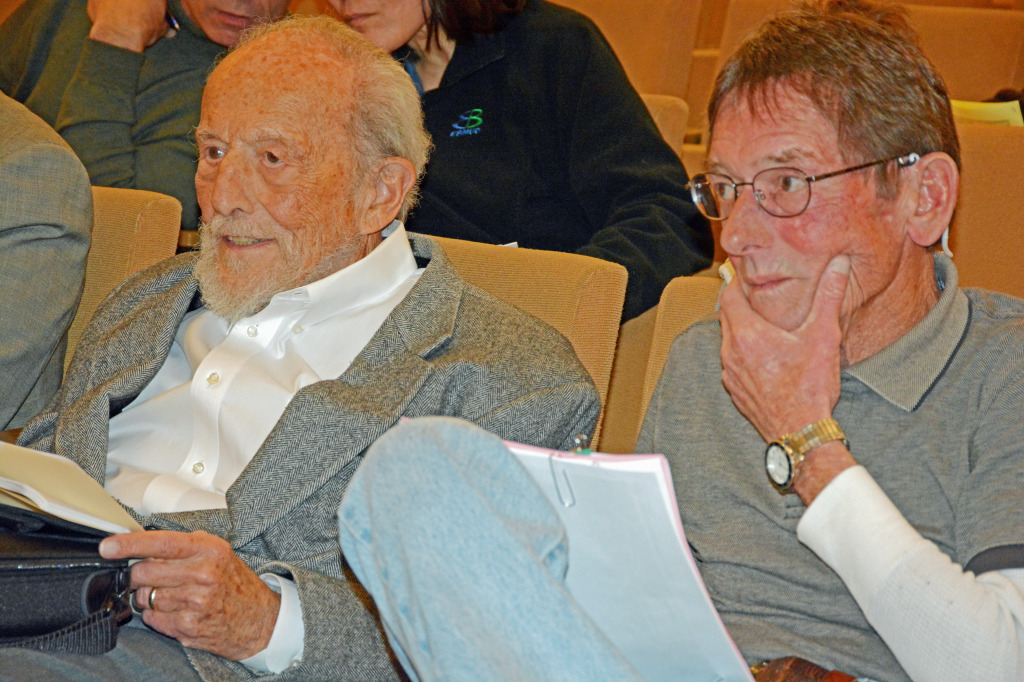Coliseum City Development Should Benefit Oakland Residents, Say Local Groups
Mar 15, 2015
Mayor Libby Schaaf does not support building sports arena in business park
By Ken Epstein
At least three local organizations and coalitions are pushing to make sure that the Coliseum City project – if it comes to pass – will provide economic and social benefits to the people who live and work in Oakland, not only the owners of the sports franchises, developers and hedge fund investors who are hoping to build a massive, entertainment, housing and hotel complex around new stadiums for the A’s, Raiders and possibly for the Warriors.
Taking somewhat different approaches are the OaklandWorks Alliance, the Oakland Heritage Alliance and a community benefits coalition that includes Communities for a Better Environment (CBE) and Just Cause/Causa Justa.

Weighing in on the issue, Mayor Libby Schaaf called for Coliseum City plans to include a mix of uses and did not support a proposal to but the Warriors arena in the middle of the business park, would would likely to eliminate a number of local buisnesses and jobs.
“There are no current plans for putting a basketball arena below the 880 freeway, nor do I see that as the most desirable location for any future new sports facilities,” Schaaf said. “Oakland needs to balance housing, entertainment, retail, businesses and industries to ensure we have a vibrant economy and great quality of life for our residents.”
Members of the OaklandWorks Alliance said they would support the Coliseum City Specific Plan and draft Environmental Impact Report (EIR) if they are modified to deal with a number of specific concerns.
The OaklandWorks Alliance is made up of individuals and eight local organizations, including Black Women Organized for Political Action (BWOPA) and the West Oakland Environmental Indicators Project (WOEIP).

In a letter to the Oakland Planning Commission, several OaklandWorks members wrote:
“African-American workers make up 28 percent of Oakland residents and 5 percent of the hours worked on city-funded construction jobs. This means that African-Americans are underrepresented more than five-fold in city-funded employment.”
“Any project on which this injustice is not rectified should not be built.”
The OaklandWorks letter also criticized city staff for failing to involve community members in a democratic process.
“Residents of East Oakland should be involved at every step of every decision-making process. This has not occurred thus far,” the letter said.
“There was no community participation until the Specific Plan was completely developed, and then city staff provided ‘information’ sessions for people to ask questions.”
The plan should only provide housing for people at the median income of Oakland residents, the letter said. “Our land and city services should not be used to build housing for people who do not live here.”
The OaklandWorks letter also calls for not rezoning the Coliseum Business Park across Highway 880 from the Coliseum arena.

The business park houses “approximately 150 businesses and employs 8,065 workers, according to statistics provided by Oakland’s economic development department,” the letter said. “These businesses could be disrupted by: a) Increased land prices created by the possibility of residential uses; b) Restricting business activities which are allowed by the current zoning.”
Naomi Schiff and the Oakland Heritage Alliance are supporting mitigations proposed by the city’s Landmarks Preservation Advisory Board, which have been included by Planning Commission staff in their draft Coliseum Area Specific Plan.
If the arena or Coliseum are torn down, the developer should make financial contributions to improve East Oakland communities to offset the loss of the historic buildings, according to the proposed mitigations.
“The amount of any such contribution shall be as negotiated between the city and the developer(s), as ultimately determined by the City Council,” according to the proposal. “Mitigation shall be provided as financial and/or cultural enhancement. Such contribution shall be commensurate with the cultural value of the Coliseum.”
Groups in the in a community benefits coalition include Communities for a Better Environment (CBE), Just Cause/Causa Justa, E), East Bay Housing Organization (EBHO), Ella Baker Center for Human Rights, Oakland Community Organizations (OCO) and East Bay Alliance for a Sustainable Economy (EBASE), which is closely allied with the Building and Construction Trades Council and other local labor unions,
This coalition, which came out in force to speak at last week’s Planning Commission meeting, is asking for an increase in the percentage of affordable housing in the proposal. The plan at present talks about provisions for 15 percent affordable housing, but the plan itself 1,700 units of market-rate housing at the site of the Oakland Corporation Yard, facing the Bay.
The demands are also for “good jobs with living wages,” protections for tenants so they will not be “pushed out by rising rents,” and protections to prevent air pollution and build a grocery store, youth center and other public services in nearby East Oakland neighborhoods.